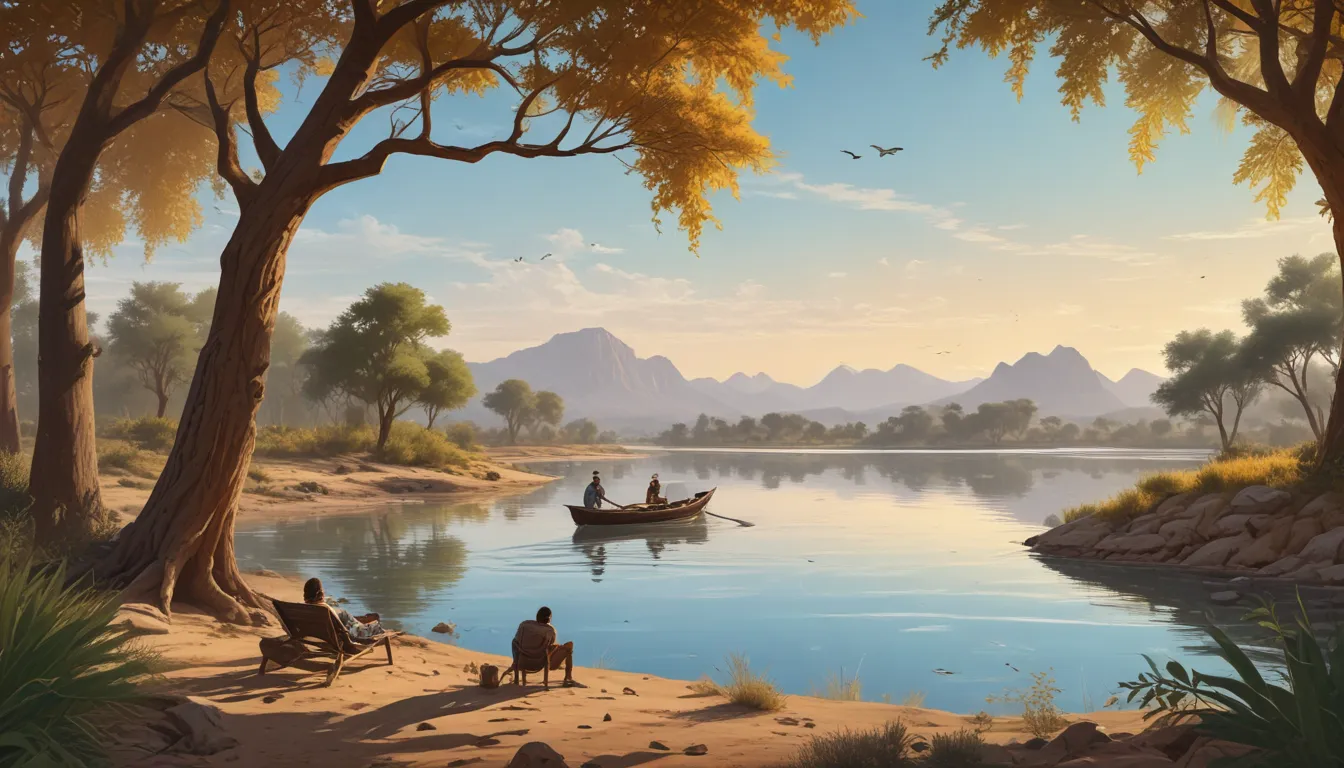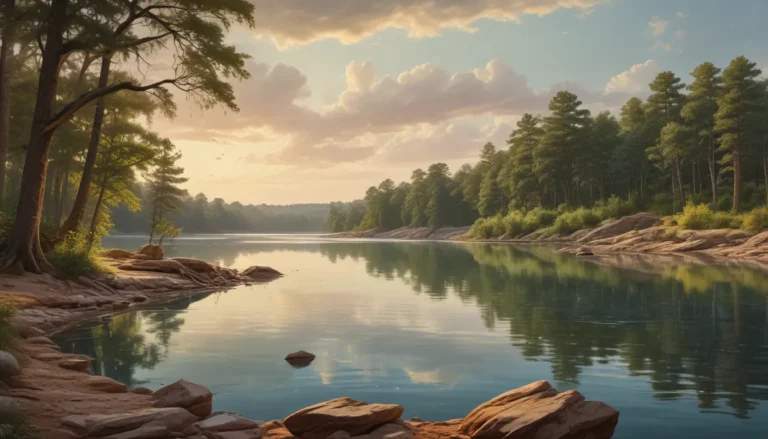The pictures we use in our articles might not show exactly what the words say. We choose these pictures to make you interested in reading more. The pictures work together with the words but don’t take their place. The words still tell you the important facts.
Lake Chad, a breathtaking natural marvel nestled in the heart of Africa, is a true gem that captivates with its beauty and complexity. From its rich history to the challenges it faces today, this iconic body of water offers a glimpse into the dynamic nature of our planet. Join us as we explore 18 enthralling facts about Lake Chad, shedding light on its importance and the need for conservation efforts to ensure its sustainability.
The Size and Location of Lake Chad
Situated in Central Africa, Lake Chad is one of the largest freshwater lakes on the continent, spanning approximately 1,350 square kilometers. It borders four countries – Chad, Cameroon, Niger, and Nigeria – offering a vital source of water for millions of people in the surrounding areas.
A Vast Source of Water
Lake Chad serves as a lifeline for over 68 million individuals, supporting agriculture, fishing, and livestock farming in the region. Its vast expanse plays a crucial role in sustaining the livelihoods of countless communities that rely on its waters.
Shrinking Size
Since the 1960s, Lake Chad has encountered a significant decrease in size, primarily attributed to climate change and a surge in water demand. With a 90% reduction in water volume, this once expansive lake is facing challenges in maintaining its ecological balance.
A Multinational Heritage
For indigenous communities residing near Lake Chad, the lake holds immense cultural significance, serving as a historical meeting point for diverse ethnic groups. Over the centuries, it has facilitated trade, cultural exchange, and intermingling, shaping the region's heritage.
Biodiversity Hotspot
The ecosystem surrounding Lake Chad is teeming with diverse plant and animal species, including various fish, migratory birds, hippos, and crocodiles. This rich biodiversity makes the lake and its wetlands a hotspot for wildlife enthusiasts and conservationists.
An Oasis for Birds
Lake Chad is a haven for hundreds of bird species, making it an important breeding ground and habitat for flamingos, pelicans, herons, and storks. Birdwatchers flock to the lake to witness these mesmerizing creatures in their natural environment.
Impact of Climate Change
The effects of climate change have taken a toll on Lake Chad, resulting in decreased rainfall and heightened evaporation. Consequently, the lake's water levels have plummeted, leading to ecological imbalances and posing challenges for local communities.
Transboundary Cooperation
Recognizing the urgent need for collective action, countries bordering Lake Chad have formed the Lake Chad Basin Commission. Established in 1964, this commission aims to foster cooperation among member states in managing the lake sustainably and preserving its resources.
Lake Chad Basin Crisis
The region around Lake Chad is grappling with a humanitarian crisis exacerbated by conflicts and climate change impacts. Displacement of communities and competition for scarce resources have compounded the challenges faced by the inhabitants of the area.
Crucial Water Supply
Beyond supporting local communities, Lake Chad plays a pivotal role in supplying water for agricultural projects and hydroelectric power generation in neighboring countries. Its significance extends to sustaining economic development in the region.
Potential Energy Resources
In addition to its water resources, Lake Chad harbors potential oil and gas reserves that could fuel economic growth in the surrounding nations. Exploration efforts are underway to ascertain the extent of these resources and their contribution to regional development.
Threats to the Ecosystem
The diminishing size of Lake Chad has triggered environmental crises such as soil erosion, wetland loss, and increased salinity. These challenges jeopardize the delicate balance of the lake's ecosystem and pose threats to its sustainability and biodiversity.
International Support and Initiatives
The global community has rallied to support Lake Chad through various initiatives aimed at combating climate change, fostering sustainable development, and addressing the humanitarian crisis in the region. These efforts underscore the importance of international collaboration in preserving this natural wonder.
Ancient History and Trade Routes
Throughout antiquity, Lake Chad has been a witness to the ebb and flow of ancient empires and a vital stop on significant trade routes crisscrossing Africa. It has facilitated commerce and cultural exchange, connecting diverse regions and shaping the history of the continent.
Tourism Potential
The picturesque landscapes and diverse wildlife of Lake Chad present immense tourism opportunities, despite existing challenges. Efforts to promote eco-tourism in the region seek to showcase the natural wonders and cultural heritage surrounding the lake, inviting visitors to experience its splendor.
Coexisting with Nature
Communities residing near Lake Chad have adapted innovative strategies for sustainable farming, fishing, and water management, demonstrating human resilience in the face of environmental changes. Their harmonious coexistence with nature showcases the importance of preserving the lake's ecosystem.
The Need for Sustainable Solutions
Preserving the ecological balance of Lake Chad is imperative for the well-being of communities and wildlife dependent on its resources. Implementing sustainable solutions, addressing climate change, and promoting responsible resource management are crucial steps to safeguarding the lake's future.
A Shared Responsibility
Lake Chad epitomizes the interconnectedness of nations and underscores the shared responsibility of safeguarding our natural resources. Collaborative efforts at the local and international levels are essential to ensure the preservation and sustainable management of this iconic lake for the benefit of present and future generations.
In conclusion, Lake Chad stands as a testament to the beauty and complexity of our natural world. Its rich history, diverse ecosystem, and importance to local communities highlight the need for conservation efforts and global cooperation in preserving this invaluable resource. By raising awareness and taking decisive action, we can ensure the longevity of Lake Chad for generations to come.
Was this page helpful?
At our core, we are committed to providing trustworthy and engaging content that empowers our readers with valuable insights. Each fact we share is contributed by individuals like you, ensuring a diverse range of perspectives and information. Our dedicated editors meticulously review each submission to uphold the highest standards of accuracy and reliability. Trust in our dedication to quality and authenticity as you embark on a journey of discovery and learning with us.






